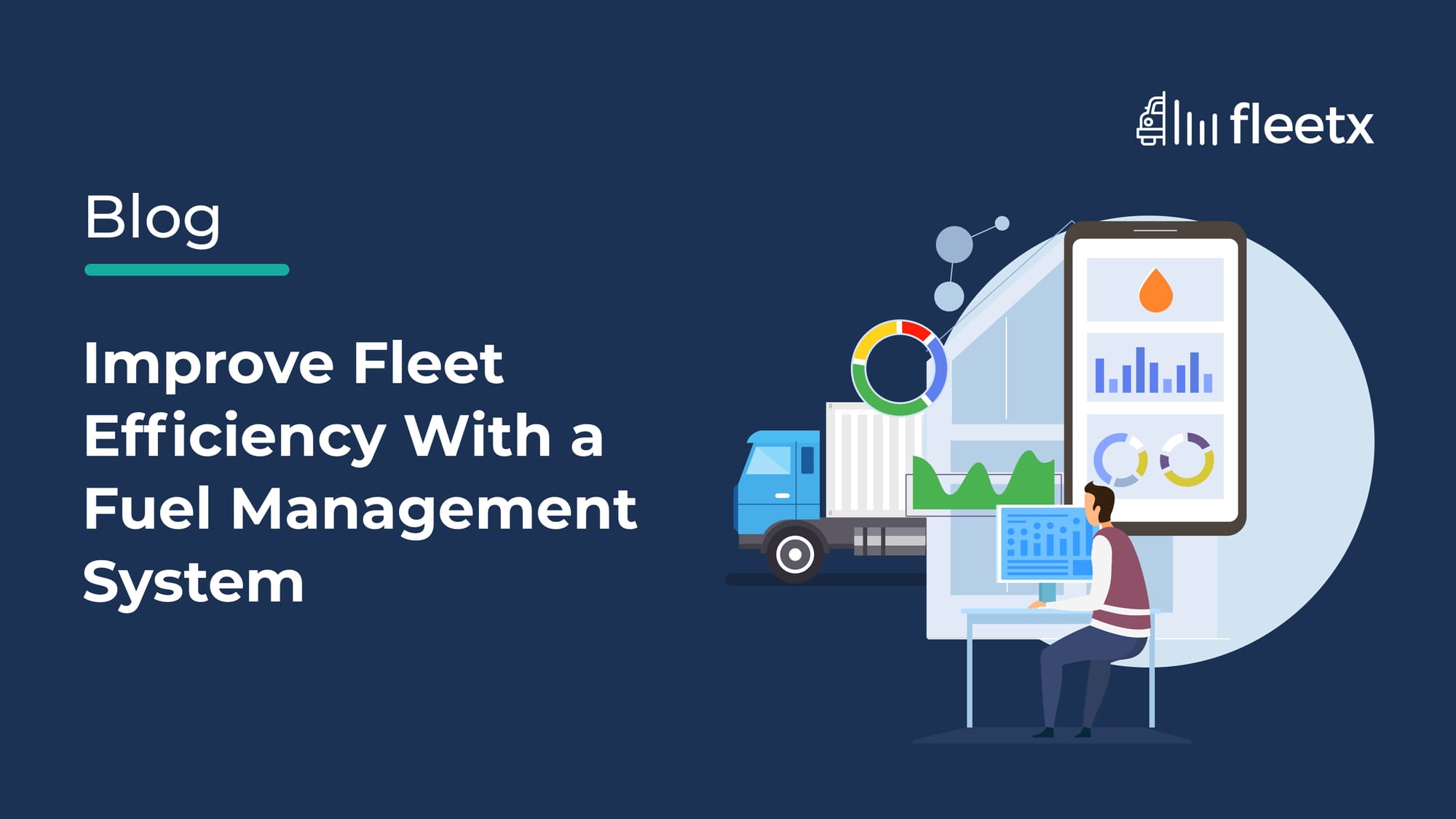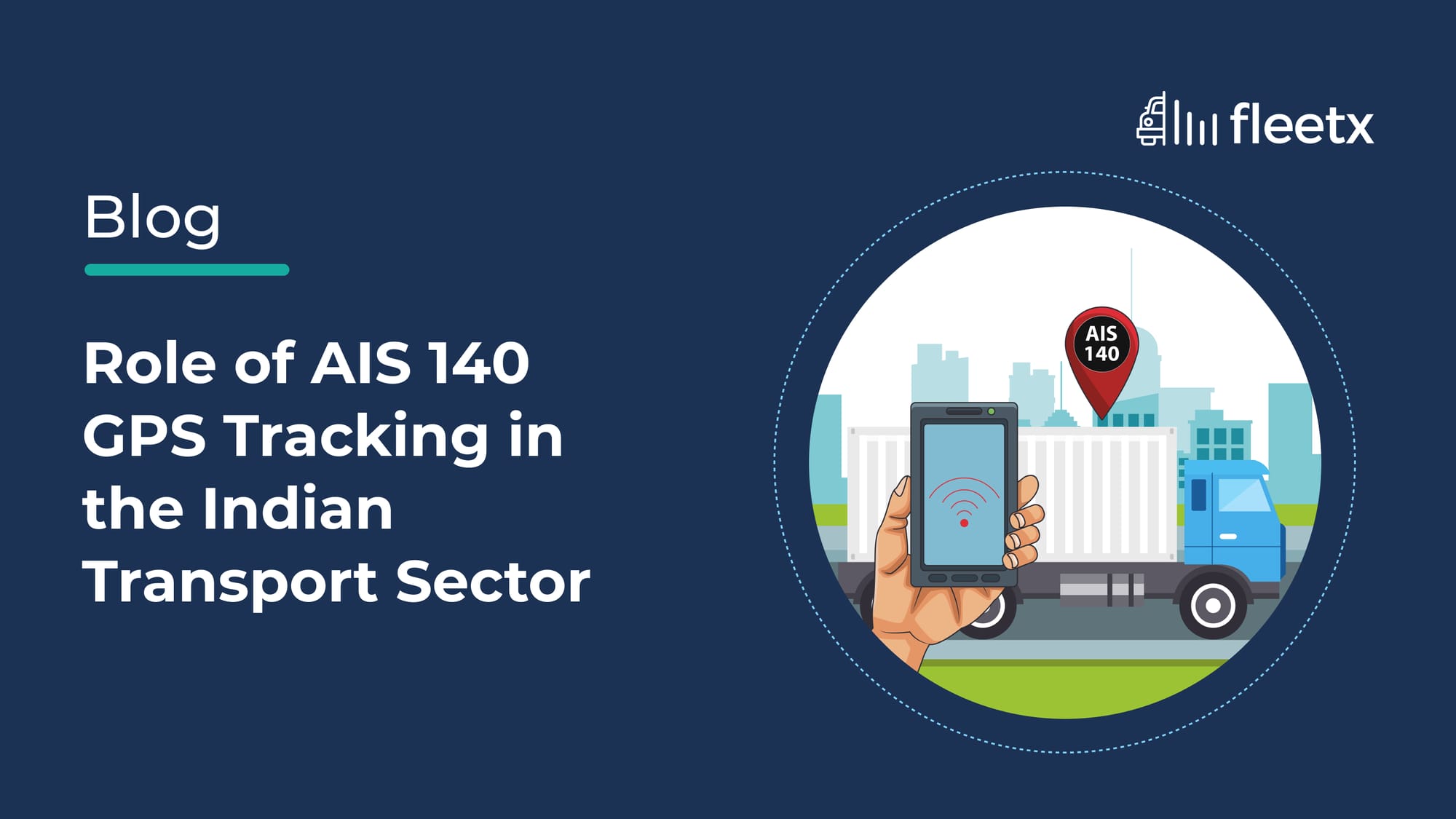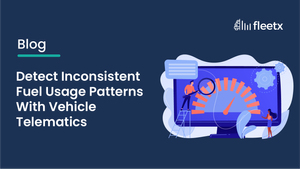
Are rising fuel costs and regulatory charges cutting into your bottom line? It’s time to take a detailed look at your fuel management strategy. Controlling fuel costs is a significant part of efficient fleet management, and ensuring fuel efficiency is the primary defense to stay competitive in a challenging market.
Logistics and Fuel Efficiency - The Road to Sustainability
One of the biggest challenges for fleet operators is fluctuation in fuel prices. Several geopolitical factors impact the prices almost daily, making budgeting and long-term planning difficult, so it’s necessary to implement strategies for strengthening the fuel economy. Fuel management is crucial as it directly affects how seamlessly the fleet operates, to lower the costs incurred per kilometer and increase the profits made by transport businesses. Traditional methods, such as manual logs and spreadsheets, are not only time-consuming but are also error-prone. Implementing an AI and IoT-based fuel management software as a part of the fleet management strategy enables higher operational control and augments fleet optimization.
Strategies to Improve Fleet Fuel Efficiency
Several measures can be implemented to maximize fuel efficiency, some of which are -
Route Optimization and Scheduling
Eliminating the longer and more congested routes ensures optimum fuel consumption. A route planning software analyzes traffic trends and delivery patterns to select the most efficient and clear delivery routes. Consolidating deliveries and truck load optimization enables the avoidance of unnecessary trips.
Telematics and GPS Tracking
Telematics-based systems let fleet operators monitor driver behavior in real-time to analyze driving patterns such as speeding, braking, acceleration, and periods of idling to let companies identify operational inefficiencies and design driver training programs for better fuel monitoring and reduce driver-based fuel waste.
Fuel Card Usage
These cards let logistics operators track and control fuel spending by providing detailed transaction details of purchases. Several such cards offer discounts and rebates that directly reduce fleet fuel costs. Fuel card usage provides control for fleet owners by ensuring fuel purchase only from approved suppliers and avoiding overpriced stations, thus facilitating driver behavior monitoring.
Regular Vehicle Service & Maintenance
Inadequate maintenance results in less efficient vehicles that consume more fuel. Implementing regular tire pressure checks, air filter replacement, engine oil change, etc., goes a long way to improve fuel economy.
Investing in Fuel-Efficient Vehicles and Alternative Fuels
During fleet upgrade, opting for fuel-efficient vehicles or adopting alternative fuel sources like natural gas or biofuels has a long-term impact on the fuel expenses. The latest eco-friendly models, such as hybrid and electric engines, offer better fuel-saving opportunities. Fuel-efficient models also require lower maintenance and have lower emission levels.
How is Tyre Health Tied to Fuel Efficiency?
A vehicle’s rolling resistance determines its level of fuel efficiency. Different tyres available in the market offer varying degrees of rolling resistance, directly impacting the engine’s power to propel the vehicle and the fuel economy. The factors that contribute to this force are -
Tread Pattern
The lowest resistance is offered by tread patterns that lack grooves and sipes, such as those on race cars, whereas tyres with big and bulky grooves, such as those on off-road vehicles, have the highest rolling resistance. However, daily-use vehicles need tyres with a balanced rolling resistance quotient.
Tyre Width
Wider tyres are bulkier to move, resulting in higher friction and energy usage. The opposite is true for sleek tyres. Both approaches have their benefits and drawbacks. Wider tyres are better for handling and stability, but with adverse effects on fuel efficiency, while thinner tyres improve fuel economy at the cost of ride comfort and safety. Again, a balanced approach offers ideal rolling resistance.
Tyre Pressure Efficiency
Under-inflated tyres lead to higher rolling resistance, while over-inflated tyres often increase deformation and resistance at the tyre-road interface. The optimal pressure strikes a balance between rolling resistance and handling.
Tyre Construction
The tyre’s internal structure, which includes the ply layers and the cord type used, plays a role in making low rolling resistance tyres or high.
Effect of Aerodynamics on Trucks’ Fuel-Efficiency
Vehicle aerodynamics focuses on minimizing air resistance to:
- Enhance fuel efficiency
- Improve high-speed stability
- Lower emissions
- Reduce operational costs
Fundamental aerodynamic features of modern trucks -
Roof Fairings - Serves the purpose of deflecting wind over the truck's top, particularly while towing trailers or containers.
Side Panels - To cover the space between the front and rear wheels for smooth airflow and lower turbulence.
Tapered Rear Ends - Certain modern trucks feature slightly angled rear edges for cut wake turbulence.
Wheel Covers and Air Dams - Minimize the drag around the wheels and undercarriage.
Another factor that directly affects engine performance is the diesel truck tuning, which represents a strategic advantage. However, there’s no thumb rule, and different strategies are applied to achieve the goal being chased by fleet operators -
Performance Tuning
It focuses on improving the engine’s power output. It consists of adjusting the injection timing, turbocharger boost levels, and rates of fuel delivery to unlock greater torque and horsepower.
Economy Tuning
This tune improves fuel efficiency by optimizing combustion cycles, reducing idle RPM, and eliminating unnecessary power output. It is particularly profitable for long-haul fleets over time, especially with fluctuating diesel prices.
Emissions Tuning
With stricter environmental regulations, emissions tuning is now a necessity. The ECM is calibrated to ensure the aftertreatment systems (EGR, DPF, and SCR) work in sync with the combustion process.
Role of a Fuel Management Software in the Indian Trucking Ecosystem
Cost Efficiency
A robust fuel management system tracks fuel consumption, levels, and refills. Moreover, when implemented in coalition with route planning and driver behavior monitoring systems, transporters can reduce the instances of idling, harsh driving, and inefficient routing.
Data Accuracy
Integrating a fuel management mechanism with fleet management software offers several crucial data points, such as vehicle speed, distance, mileage, and completed trips - insights that monitor fuel consumption, keeping fuel expenses in check.
Lower Downtime
Analysis of the fuel consumption trends, fleet managers can predict the maintenance needs and schedule services, ensuring good vehicle health to avoid breakdowns.
Insightful Decision-Making
Data-based reports generated by fuel management systems indicate the usage and wastage patterns, aiding in fixing the gaps and augmenting operations with smart insights.
Tips on How to Save Diesel in Heavy Trucks at Different Levels
Driver Level
Besides implementing an advanced fuel monitoring system, fleet managers can further optimize truck diesel mileage through effective driver coaching based on several parameters -
- Instances of speeding, distracted driving, and fatigue
- Tailgating, forward collision, and quick lane departures
- Automating manual tasks such as incident review and reporting
- Real-time fleet visibility for better decision-making
- Improving the communication channels among all stakeholders
Operations Head/ COO Level
The management-level framework planning should include -
- Establishing fuel efficiency metrics in quarterly reviews to reduce the cost per delivery
- Cross-linking fuel data with order management and delivery SLAs
- Penalty clauses for inefficient fuel usage in outsourced fleets to improve control over operations
Maintenance Supervisor Level
Maintenance activities play an important role in improving fleet fuel efficiency and extending the vehicle’s lifespan. Certain pointers include -
- Standardizing periodic checks of tyre health, engine tuning, fuel line inspection, etc.
- Well-timed high-friction component replacement
- Timely diagnostic checks to detect mileage dips proactively
Procurement Lead Level
Vehicle and component purchases are significant stages that determine the fleet’s fuel efficiency and future-proof procurement decisions. Some long-term cost-saving techniques include -
- Choosing fuel-optimized trucks at the stage of procurement
- Integrating vendor KPIs with fuel efficiency benchmarks
Drive Systemic Changes to Future-Proof Fleet Fuel Efficiency
Fuel usage optimization isn’t only about cost reduction - it involves a comprehensive approach toward implementing sustainable practices and consistent efforts to maintain fleet efficiency for a competitive edge.
Introducing technology advancements - fuel telematics, route optimization, eco-drive training, optimizing fleet composition, predictive maintenance, and other data-driven measures - are making fleet operations smarter every day by offering a comprehensive operational view that identifies the gaps and enables the implementation of targeted AI and IoT-based solutions.
What is the significance of fuel management systems for fleet owners?
Fuel management affects the overall operational costs, fleet performance, and profitability. With dynamic fuel rates, an automated mechanism ensures cost control, better mileage, and efficient route planning.
How does AI and IoT-based fuel management software help reduce fuel costs?
AI and IoT-based systems offer real-time fuel consumption tracking, driver behavior monitoring, and enhanced routing efficiency. This data-based approach enables operators to minimize idling, avoid inefficient routes, and detect fuel theft or wastage.
Is tyre health important in improving fuel efficiency?
Tyre health metrics such as tread patterns, width, pressure, and construction affect rolling resistance. Properly maintained and inflated tyres reduce resistance, boost fuel economy, and increase tyre longevity.
Is diesel truck tuning effective in improving fuel efficiency?
Yes. Truck tuning optimizes combustion, controls unnecessary power drainage, and minimizes idle RPM, resulting in better fuel mileage, especially for long-haul fleets.





